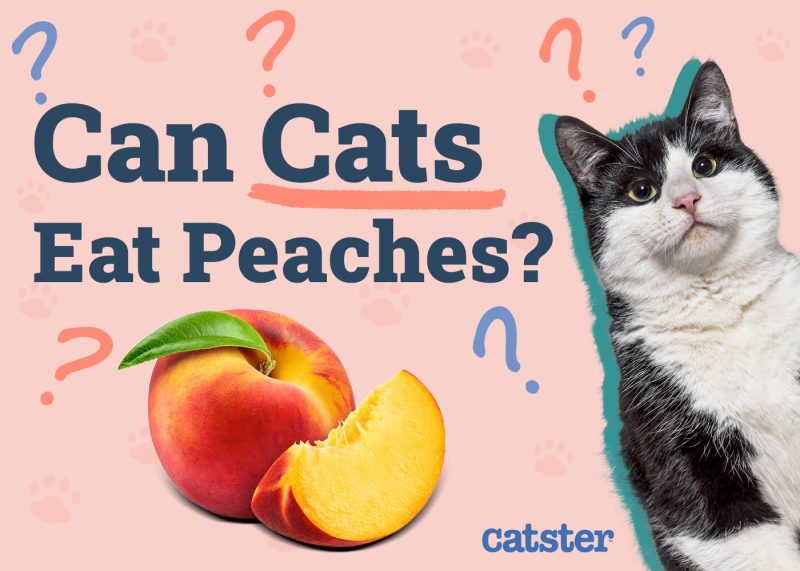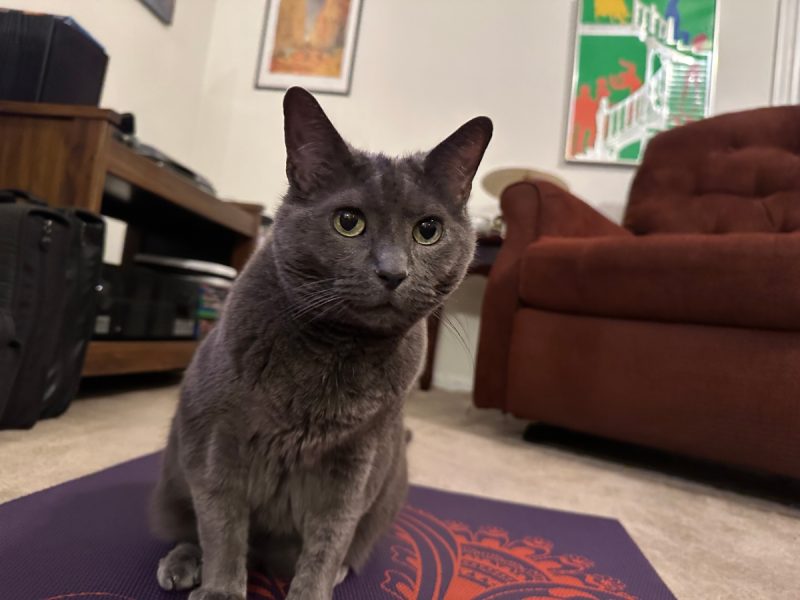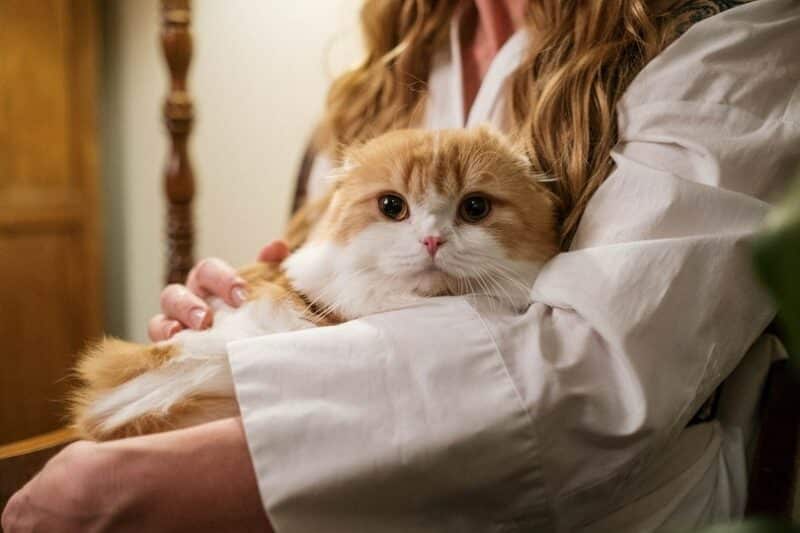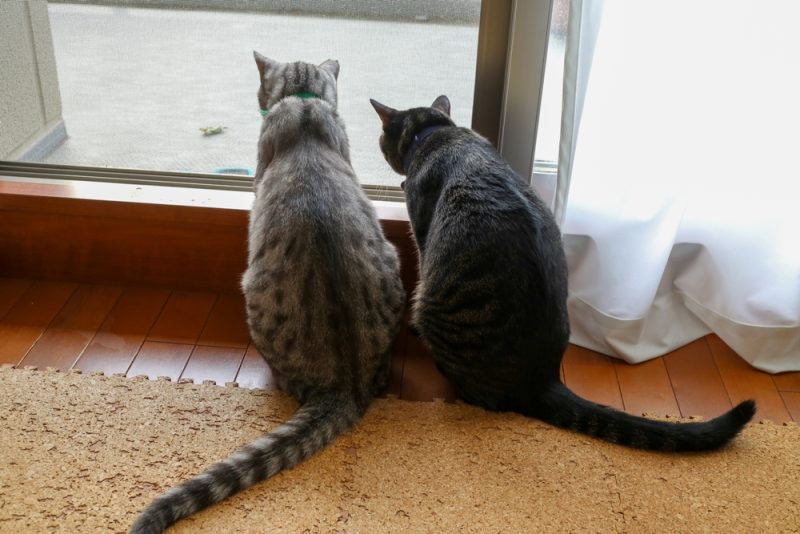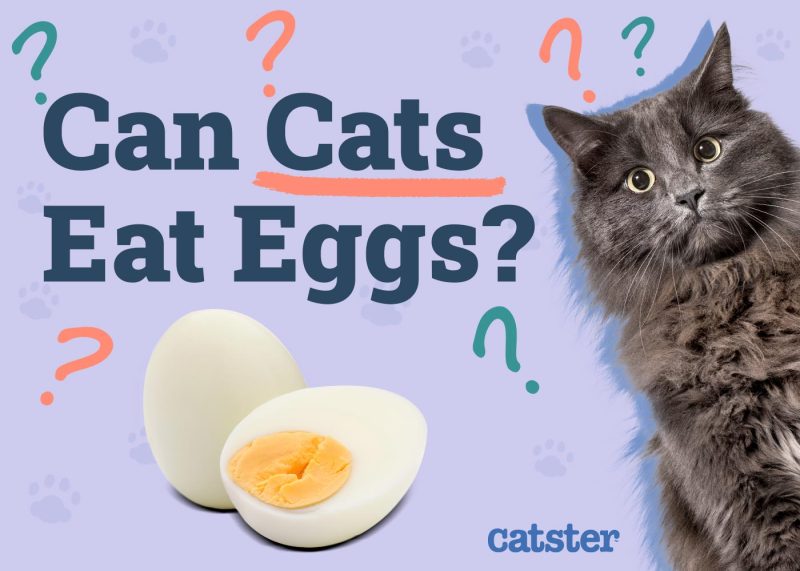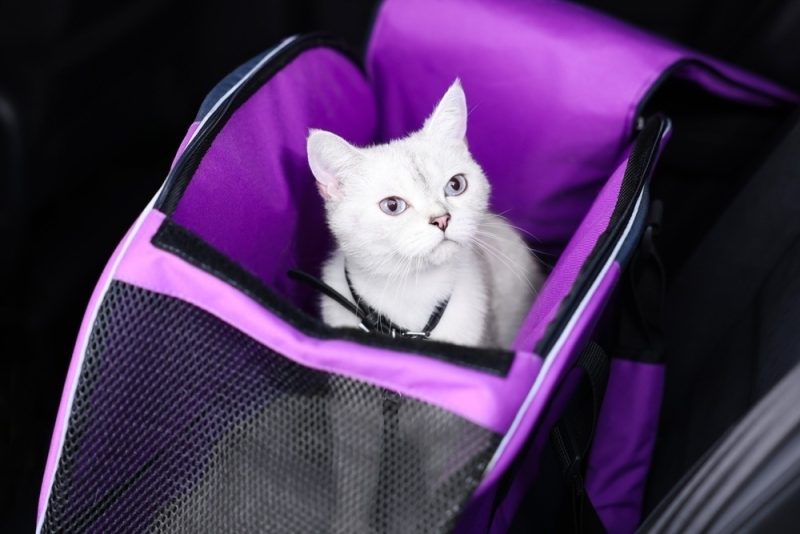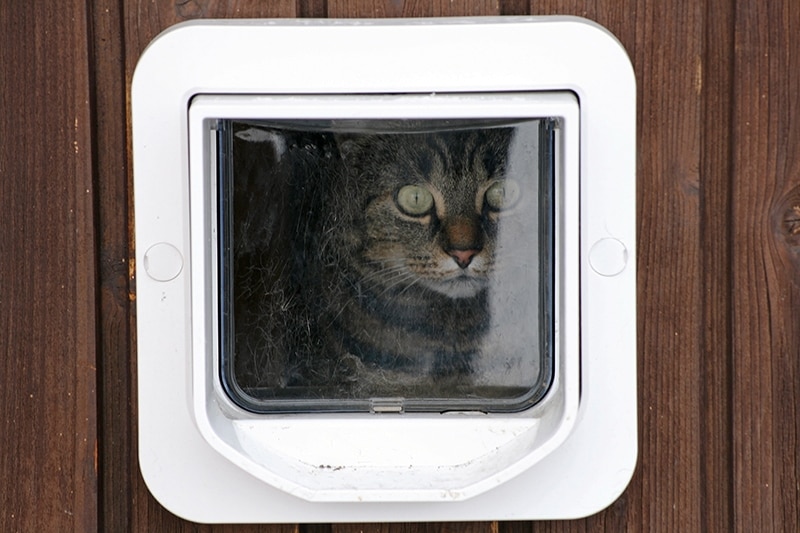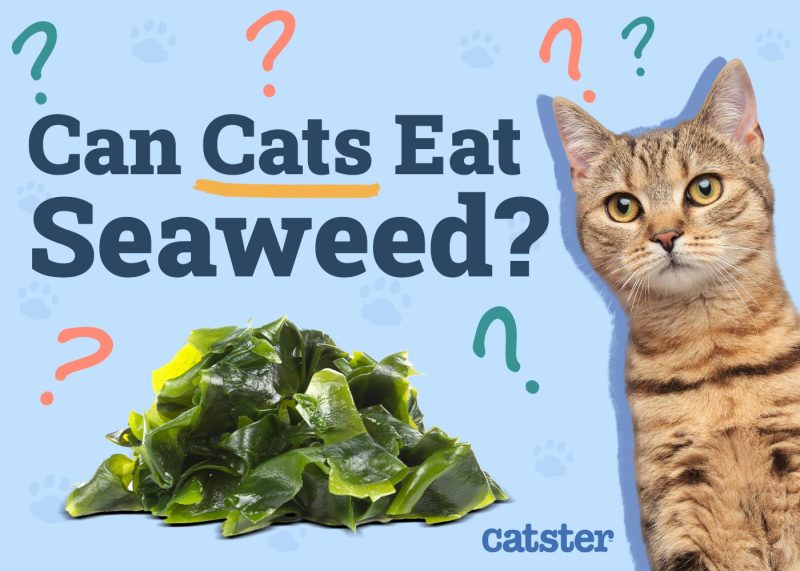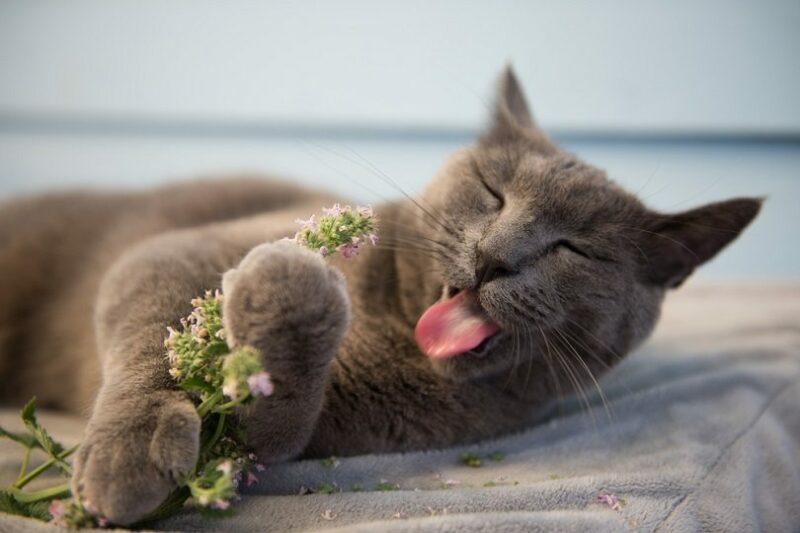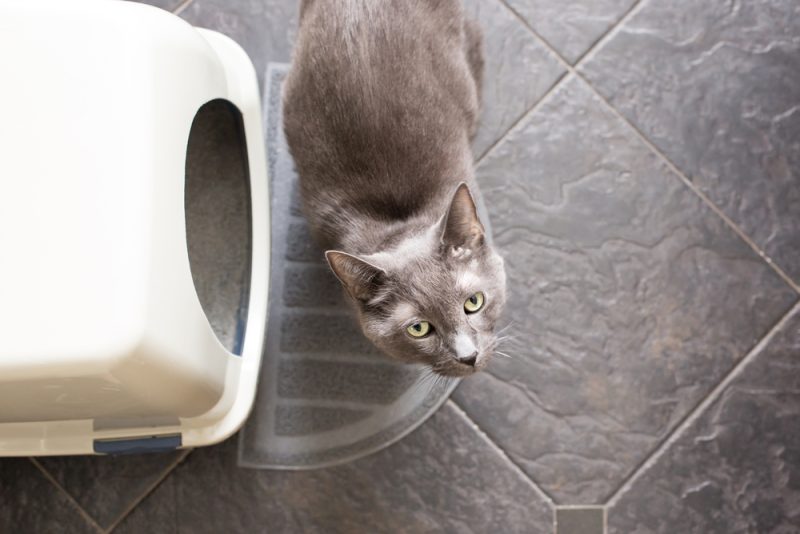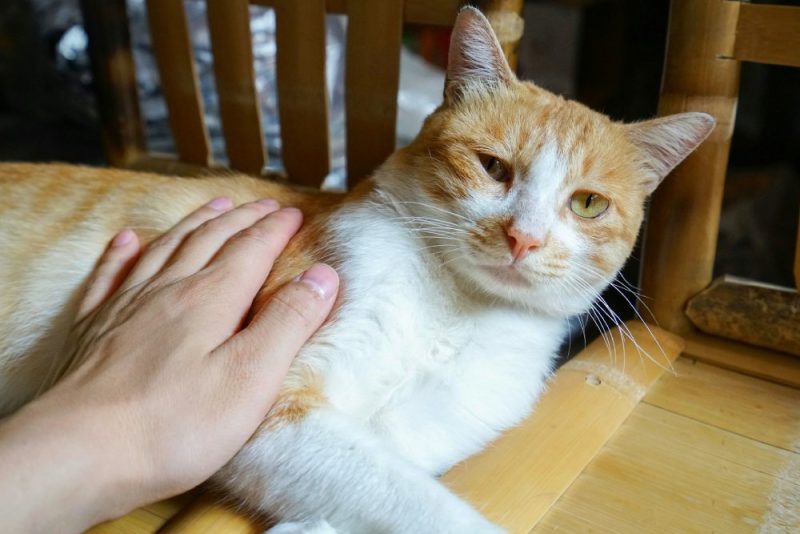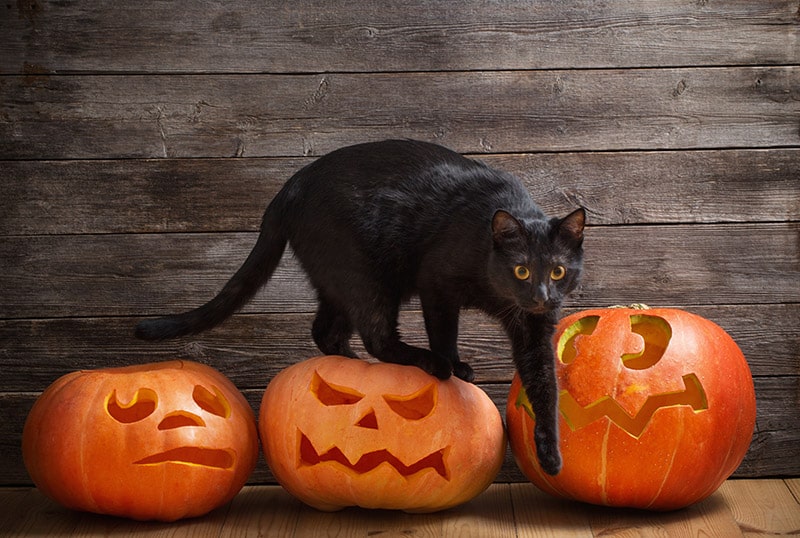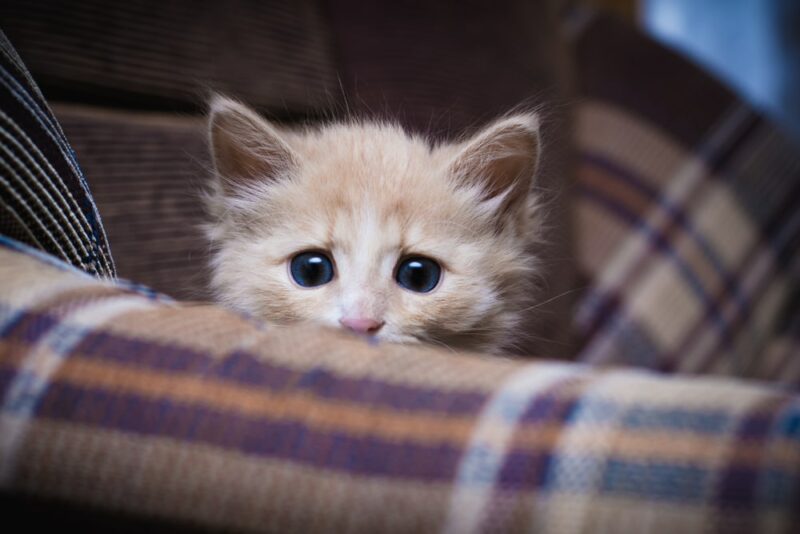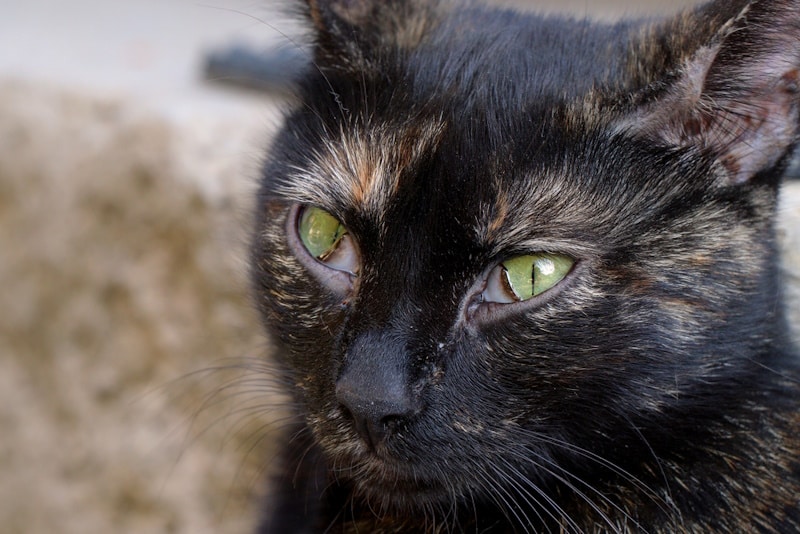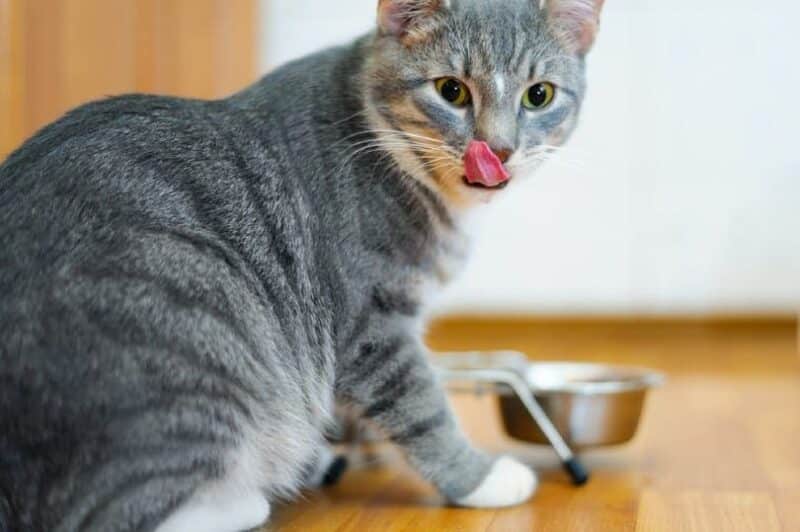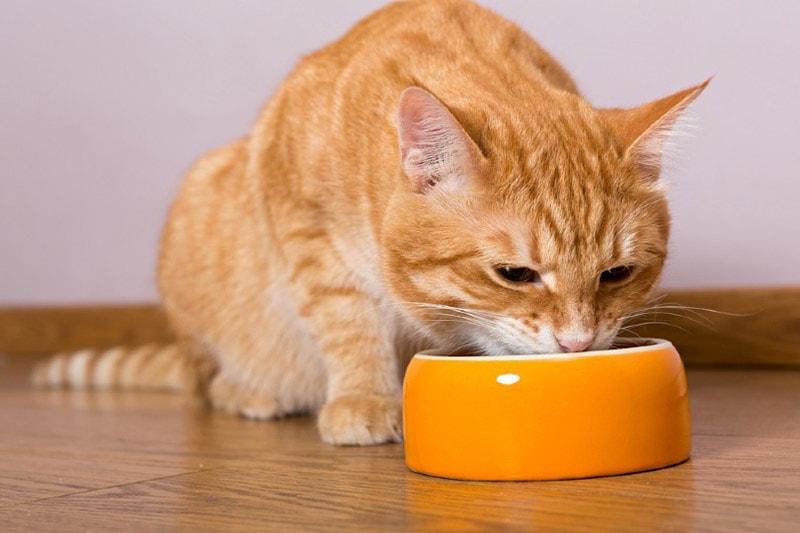In this article
View 2 More +Peaches are among the sweetest and most delicious natural treats there are. Since cats are so curious by nature, you may notice your feline coming over for a sniff, showing interest in the peaches you’re snacking on. If you’re like us, you probably like to help your pets live their best lives by providing them with the luxuries they love, as long as it’s safe to do so. But can cats eat peaches? In moderation, peaches are fine for your feline. However, there are some caveats and some information you should be aware of if you’re going to feed your cat this sweet treat. Let’s take a closer look.

Feeding Your Cat Peaches
Unless you grow the peaches in your own yard, it’s going to be difficult to know what chemicals, pesticides, and other things might be residing on that fruit. So, while cats can have peaches, you need to make sure they are thoroughly washed before consumption. Also, while you might sit down with a whole peach and take a bite right out of the side of it, that’s not how your cat is going to eat it.
Keep reading to learn how to offer peaches to your cat.
1. Wash Them Thoroughly
To ensure your cat isn’t taking in any of those pesticides, you’re going to need to wash the peaches thoroughly. If you grew them, then you may know that they’re free of pesticides and other chemicals, but it’s still a good idea to wash them well to get rid of any potential contamination before feeding them to your cat.
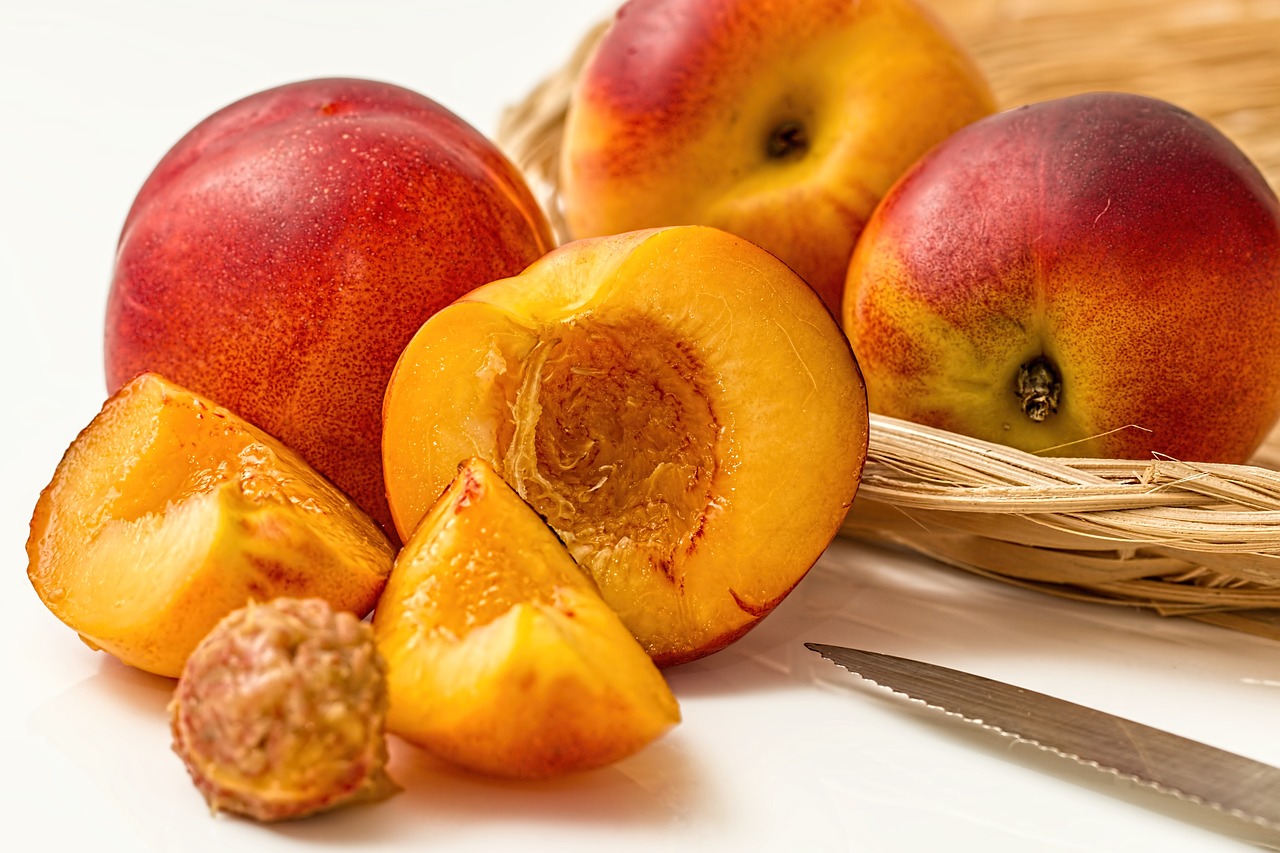
2. Peel the Skin
After you’ve washed them down, you should peel the skin off the peaches before feeding them to your cat. Not only will this help prevent them from ingesting any harmful chemicals or pesticides on the outside of the fruit, but it’s also going to make it much easier for them to eat.
3. Cut Into Tiny Pieces
After you’ve washed and peeled the skin off the peach, it is important to cut it into tiny pieces before feeding it to your cat. You must ensure that your cat is not at risk of choking on the pit, and this is the only way to be sure this won’t happen.
There’s a good reason that we don’t eat the pits of peaches or other stone fruits. While the flesh around the seed may be delicious and sweet, the seed is full of a chemical that can poison humans, even causing death if consumed in large quantities. If it can damage our large bodies and strong immune systems, imagine the havoc that it could wreak on your little cat.
That chemical compound is called amygdalin. In the body, amygdalin breaks down into cyanide, a poison that we’re all familiar with. Between this and the choking hazard, one peach pit could turn out to be fatal for your feline, so it’s a risk that’s not worth taking.
Even just fragments of the pit can cause problems for your pet, including irritation along the intestines (enteritis) or the digestive tract. If you eat peaches frequently, make sure you’re safely disposing of the pits where there’s no chance of your cat accidentally finding them.
Cutting the flesh of a peach into tiny pieces will also make it easier to offer your cat only a taste or treat of the peach and not an excessive amount. Ultimately, peaches are not something that cats should ingest in large quantities because they are obligate carnivores. That said, it is safe to give them a tiny taste of it as an occasional treat or simply to satisfy their curiosity.
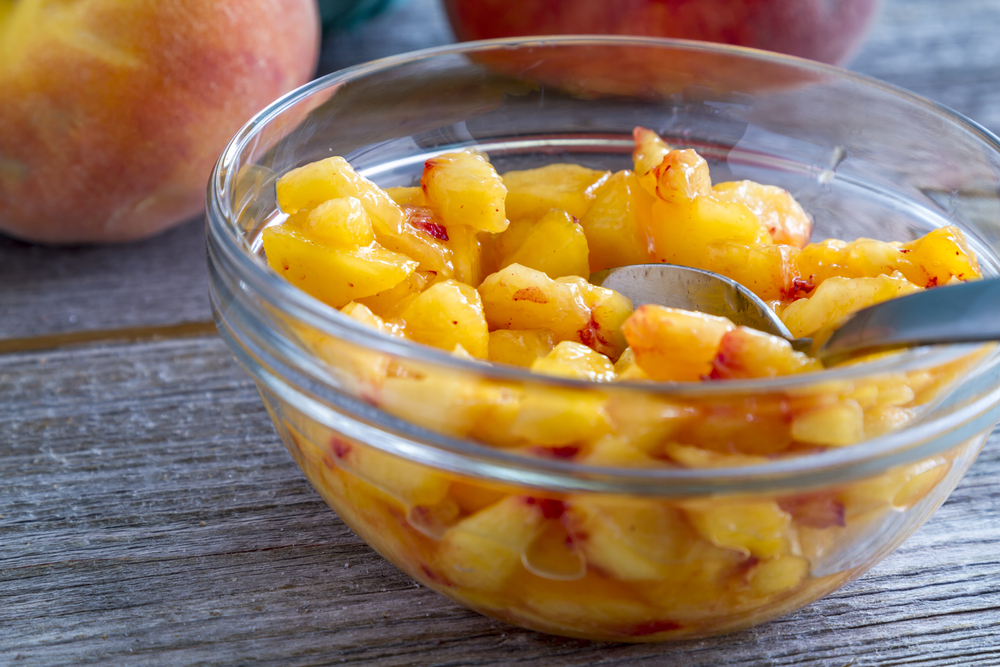

Preserved vs. Fresh Peaches
While canned peaches may be extremely convenient since they’re already peeled and sliced, they’re not actually a good choice to feed your cat. The extra sugar and additives in canned food can be terrible for your feline. Canned foods are full of preservatives, sugar, or even worse, artificial sweeteners, and other chemicals. A cat’s digestive system is not built to handle all those additives.
Since you care about your cat, it’s worth the extra work to prepare the peaches yourself and ensure that your cat won’t be taking in any harmful chemicals or additives.
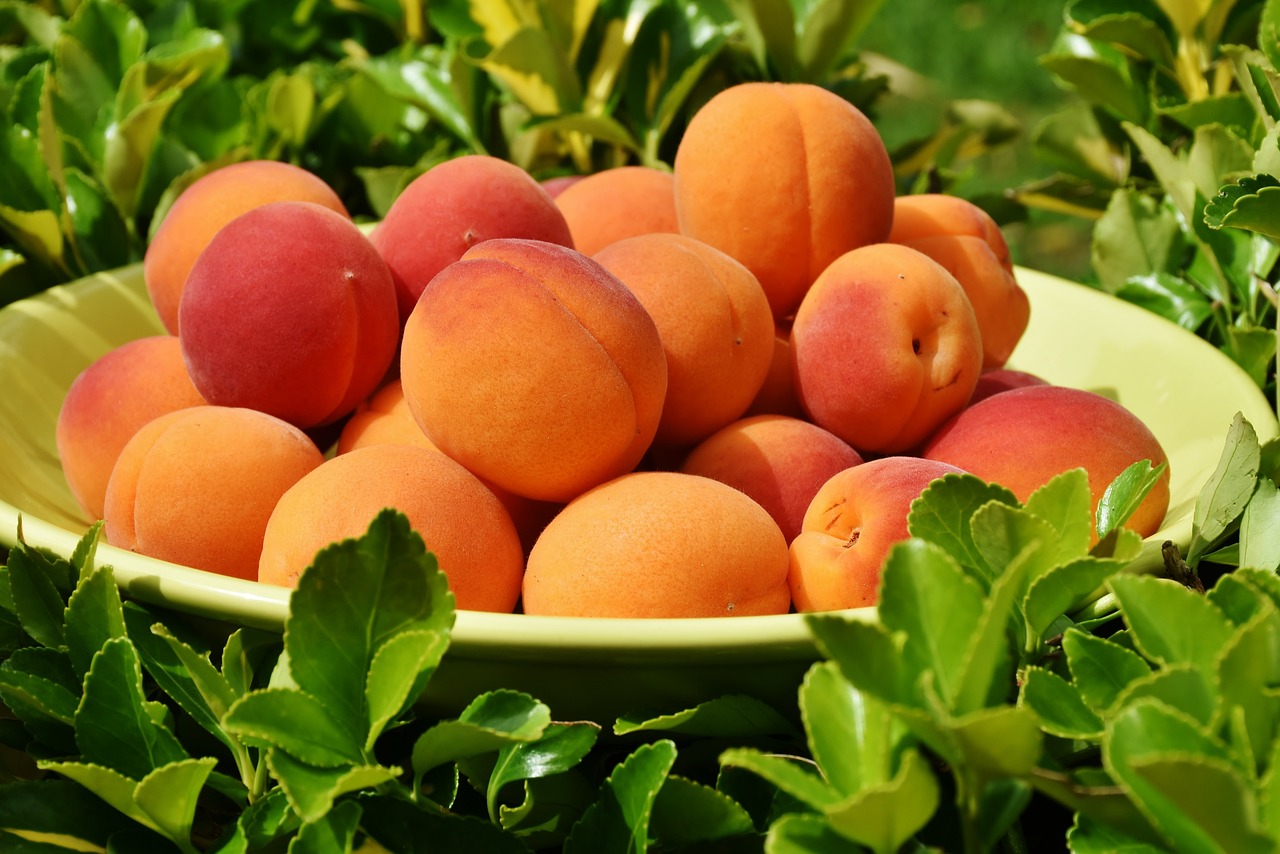

What About Peach Trees?
If you have a peach tree in your yard, you get to enjoy this delicious fruit whenever you like. But this can pose a potential health risk for your cat. When those peaches fall from the tree, they land within reach of your cat, who may end up eating something they shouldn’t.
Even the leaves of the tree and the stems of peaches have amygdalin in them, so chewing on them could poison your pet. For pet owners with peach trees, make sure you clean up regularly so that the poisonous peach pits, stems, and leaves aren’t within reach of your furry friends.
Everything in Moderation
Cats may show interest in trying many different foods, but it doesn’t mean that their body is well adjusted and able to digest them without problems. Even for a perfectly healthy cat, if it’s something new for their system (even if it’s non-toxic for felines), it could cause some issues, such as an upset stomach or even diarrhea and vomiting.
So, how often can cats eat peaches? It’s best to feed treats and any new foods to your cats sparingly. Let them try a small piece of it first, and see how they react. If they handle it well, then the next time, you can give them a little bit more. This is a good general rule of thumb for introducing any new food to your cat, even new cat food.
- NO MESS - The 360° tray on this cat food and water bowl set has a raised design to catch and...
- WHISKER FRIENDLY - Shallow and wide metal containers with flat bottoms ensure your kitty can enjoy...
- CHEW-SAFE MATERIALS - Kittens and cats love chewing on silicone and soft rubber - but it's a choking...
Learning about what your cat can and cannot eat is a crucial part of keeping them happy and healthy! Choosing a bowl to serve cat-friendly foods in is another important decision pet owners face. Satisfy the specific needs of your cat with the innovative design of the Hepper NomNom Cat Bowl. Learn why it’s our (and our cats!) favorite food and water dish here.
At Catster, we’ve admired Hepper for many years and decided to take a controlling ownership interest so that we could benefit from the outstanding designs of this cool cat company!

Conclusion
Peaches make delicious and naturally sweet treats for humans and now we know that cats can eat peaches as well. If you take some precautions, peaches are safe for cats in tiny amounts, though that does not mean you should. If you are interested in sharing a piece of peach with your cat, be sure to wash the fruit thoroughly first to avoid feeding your cat any chemicals or pesticides.
Don’t forget, the peach pits are toxic! So are the peach stems and the leaves of the peach tree. Never let your cat eat the pits, stems, or leaves, and if you have a peach tree in your yard, make sure you keep the ground peach and pit-free so your cats can’t accidentally poison themselves!
Related Reads:
